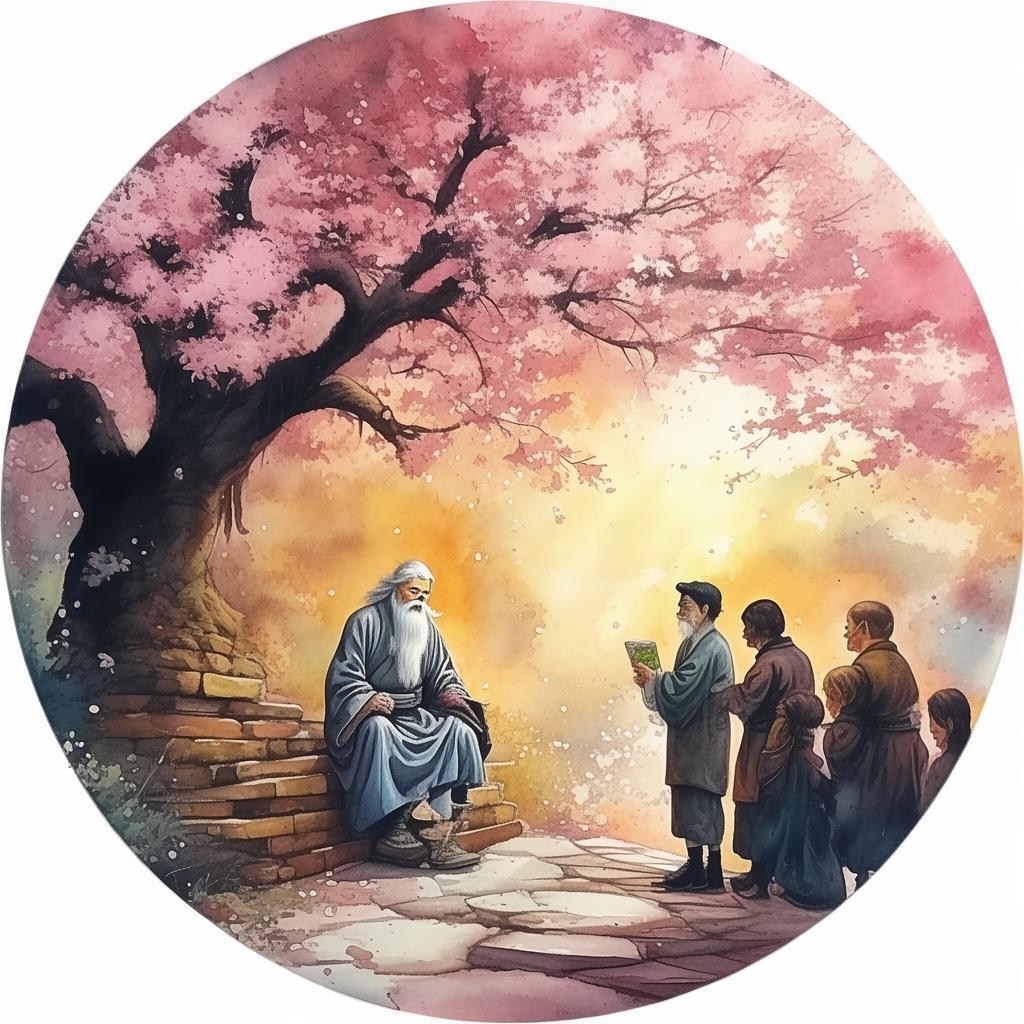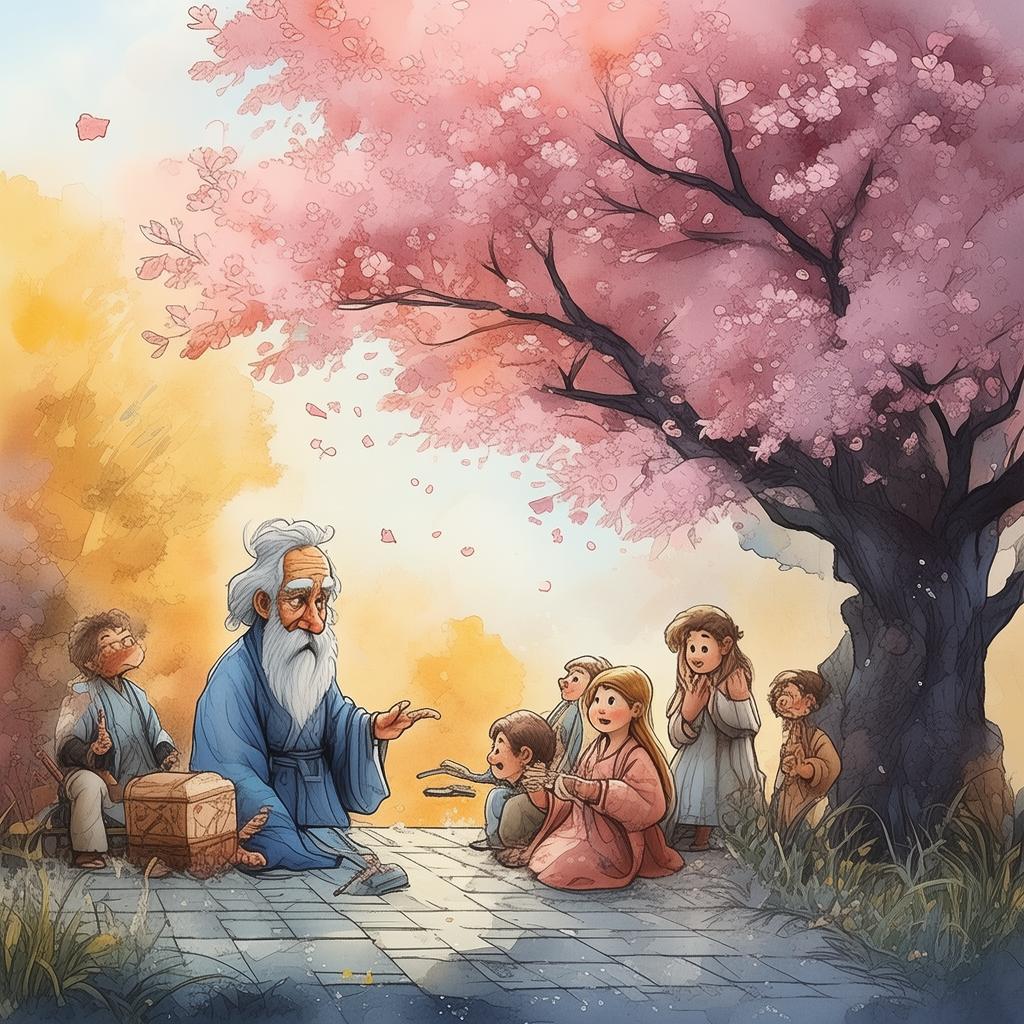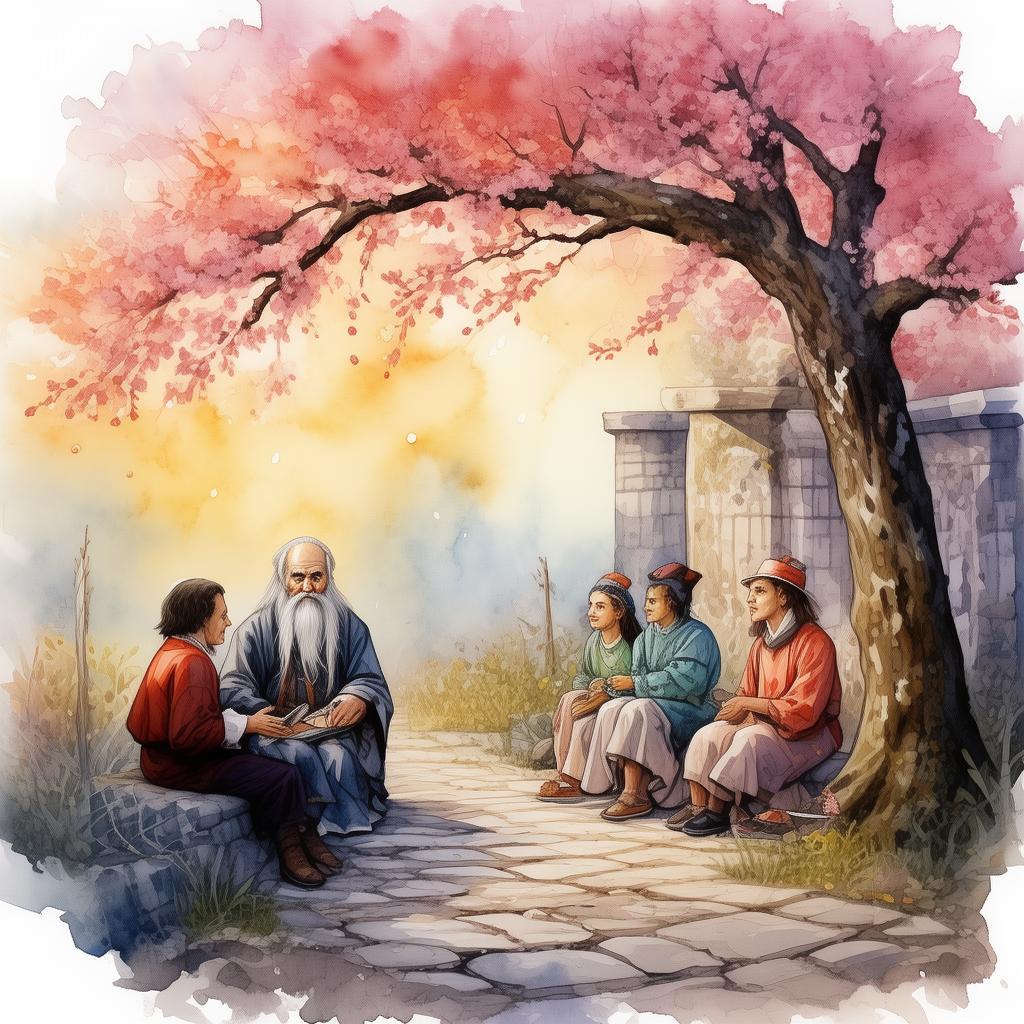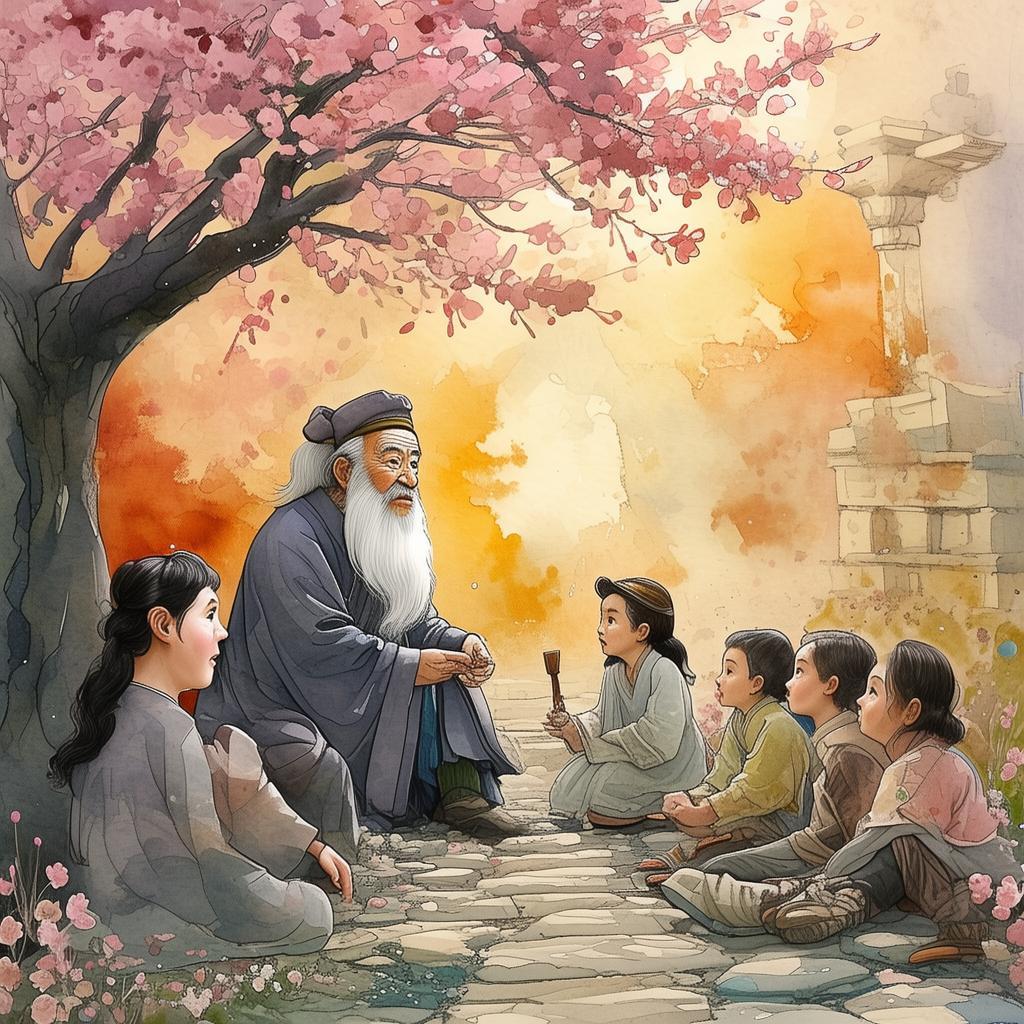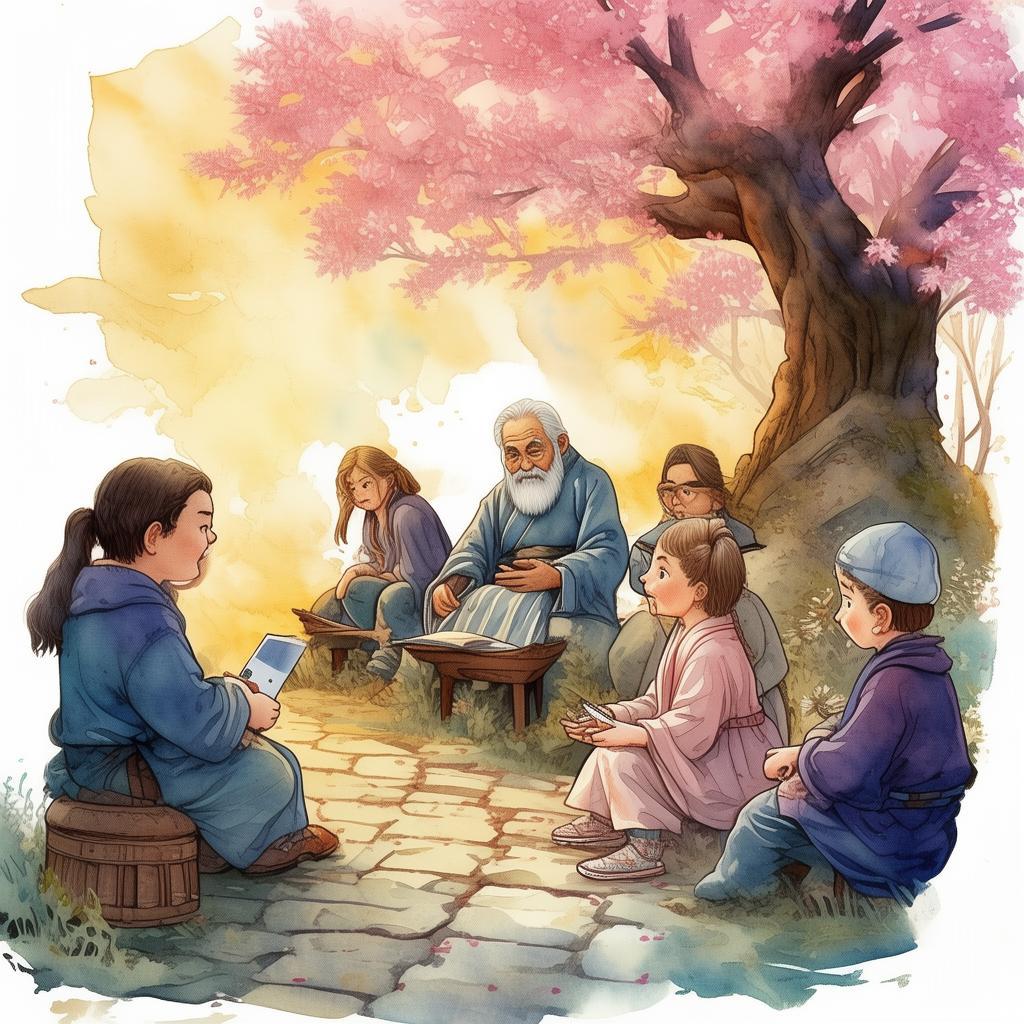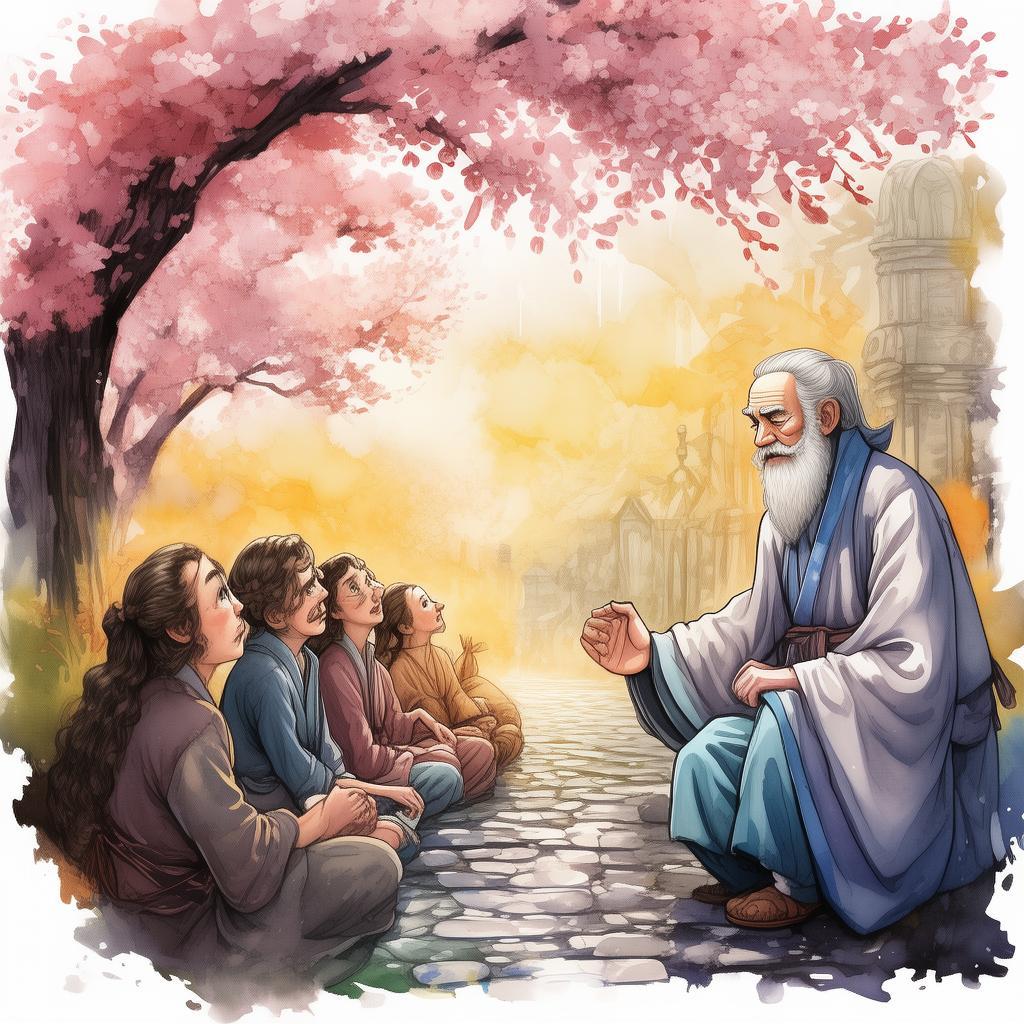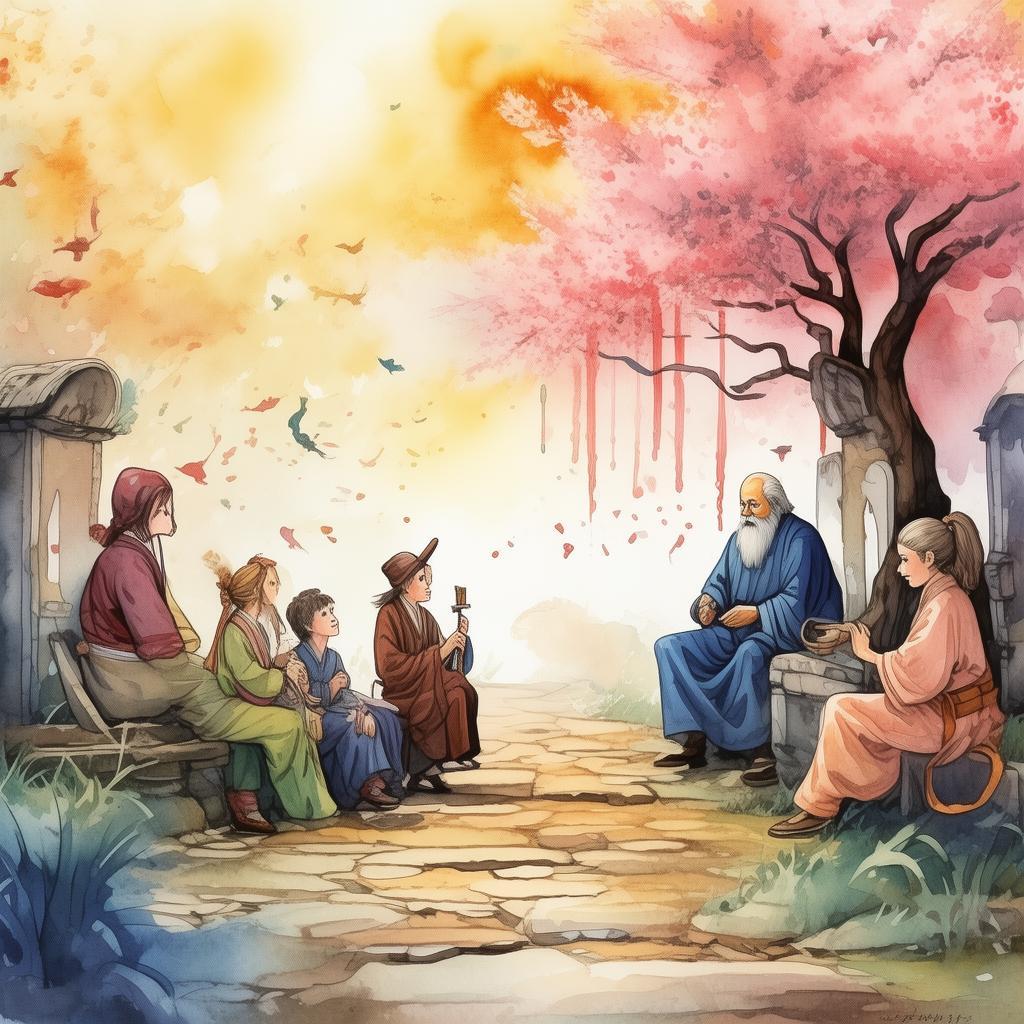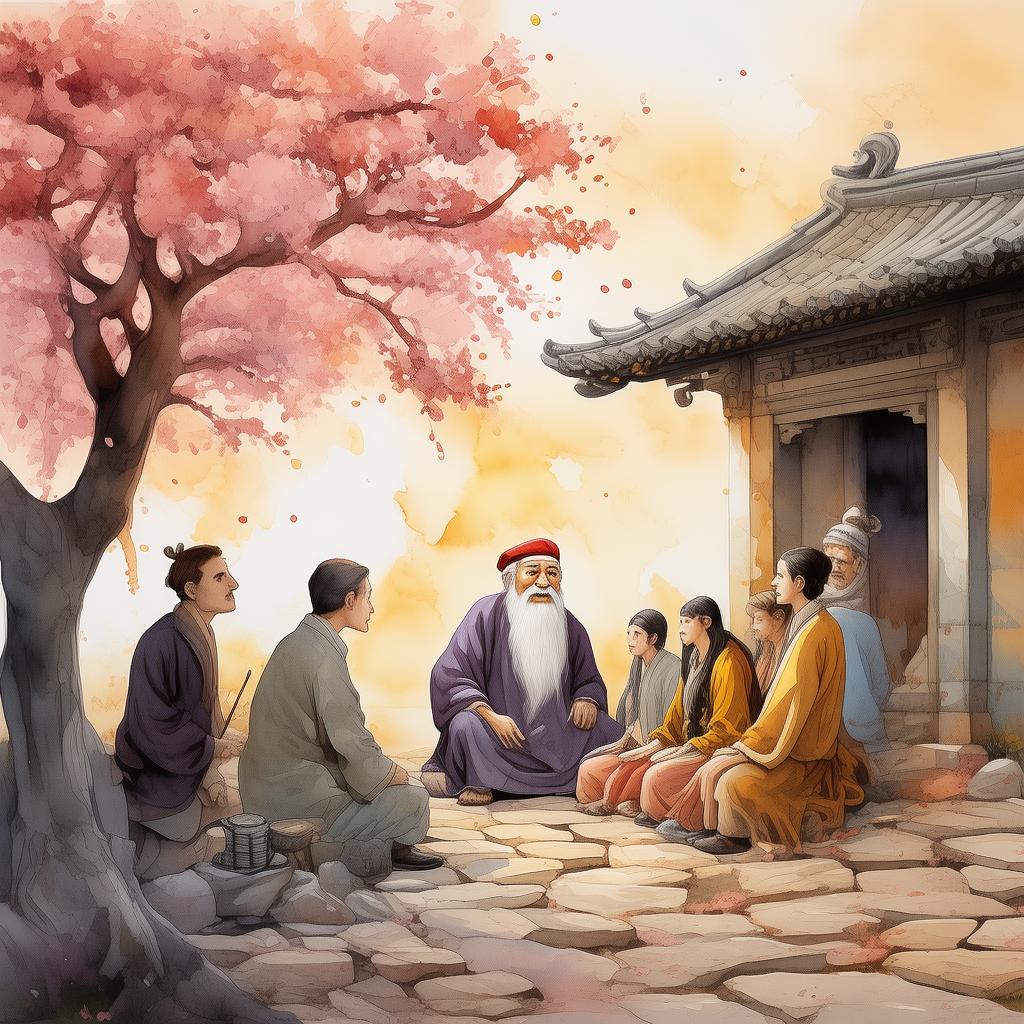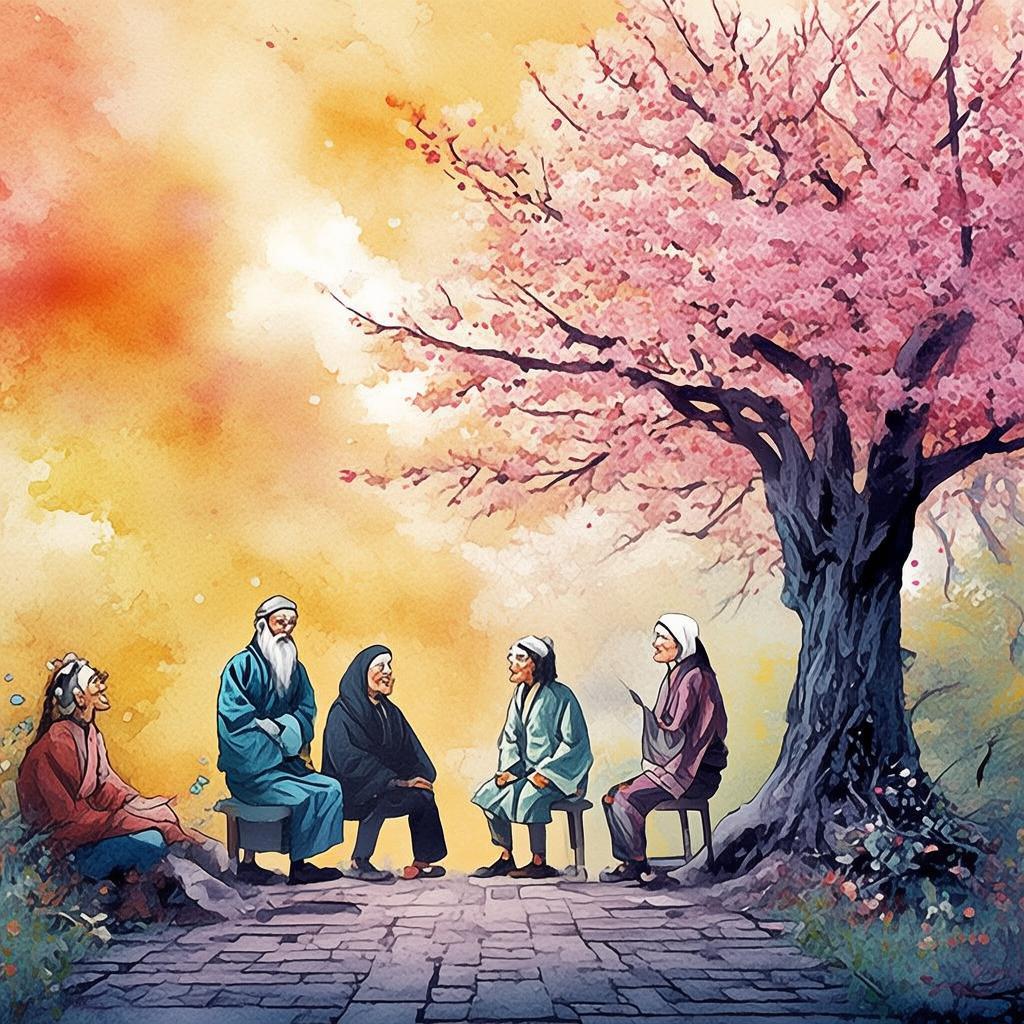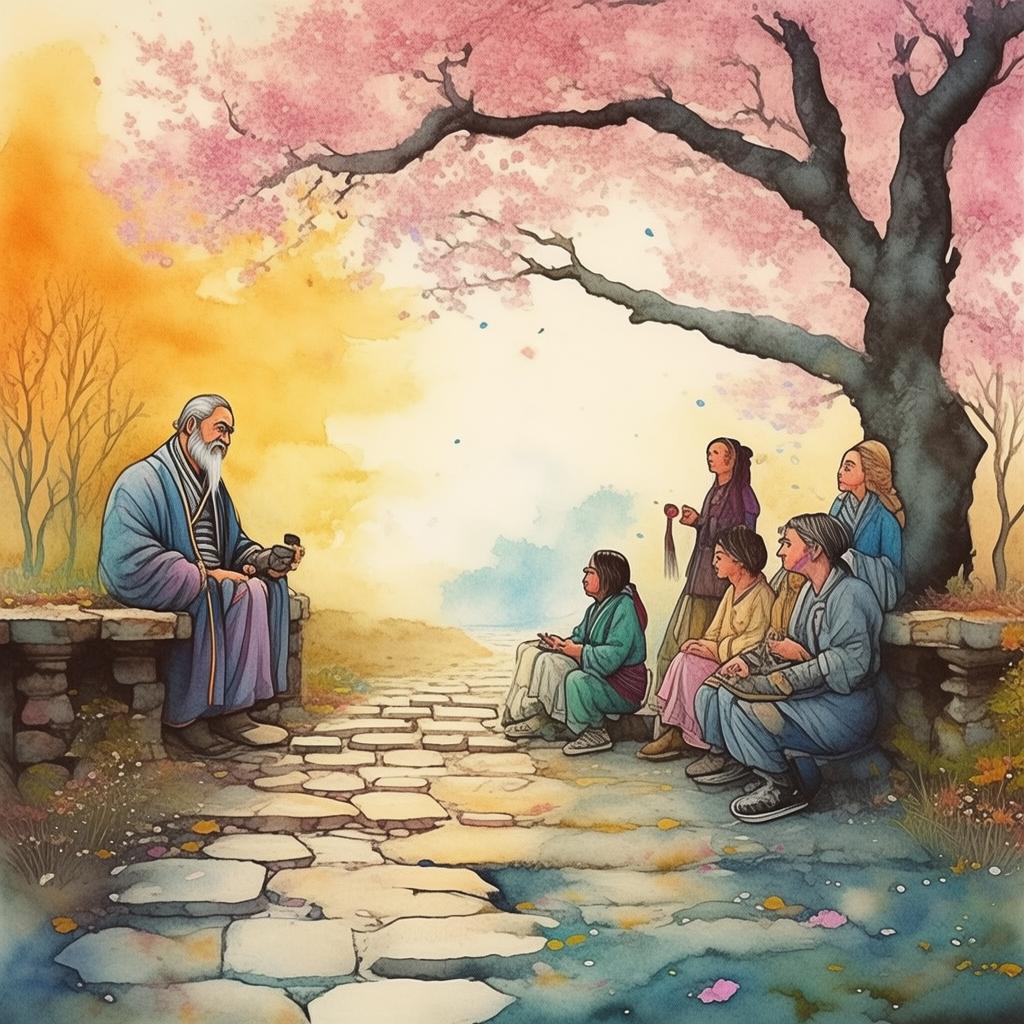The Ruse of a Young Scholar: A Tale of Deceit and Discovery
In the waning days of the Northern Song Dynasty, a great plague swept through the land, leaving a path of death and despair. Amidst the chaos, a young scholar named Liang found himself at the heart of a dangerous ruse that would test his wits and loyalty to the very core.
Liang was not just any scholar; he was a prodigy, known for his vast knowledge and unparalleled intellect. His name was whispered in hushed tones by the literati of the capital, for he was said to possess the wisdom of ancient sages. Yet, beneath the veil of his scholarly demeanor, there lay a mind as cunning as it was brilliant.
The ruse began with a letter. It was delivered to Liang's humble abode by a mysterious courier, a man whose face was shrouded in the shadows. The letter spoke of a conspiracy, a plot so grand that it could alter the course of history. It spoke of a pawn, The Plague's Pawn, a figure who held the power to control the plague and manipulate the fate of the kingdom.
Liang's curiosity was piqued, but his caution was sharp. He knew the dangers of associating with such a scandalous affair, yet the allure of uncovering the truth was irresistible. He began his investigation, using his scholarly acumen to piece together the clues hidden within the letter.
As Liang delved deeper, he discovered that the pawn was none other than a young noblewoman, Lady Hua, who had been betrothed to the prince. She was a figure of great beauty and grace, yet her gentle demeanor concealed a cunning mind and a loyalty to her own cause.
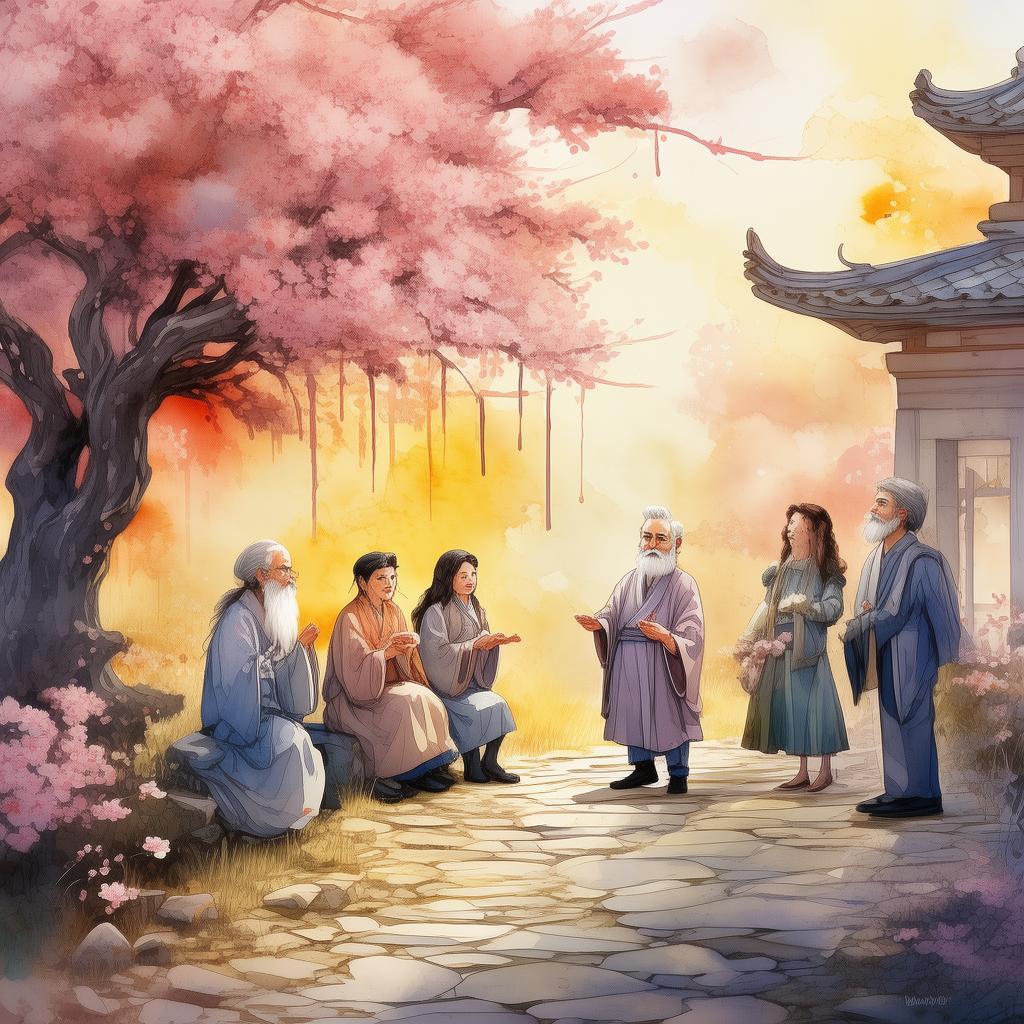
Liang's investigation led him to a clandestine meeting with Lady Hua. She was as enigmatic as she was elegant, her eyes holding the weight of a thousand secrets. She revealed to Liang that she had been chosen as the pawn by a group of loyalists who sought to depose the current ruler and restore the rightful heir to the throne.
Liang was torn. On one hand, he admired Lady Hua's bravery and intelligence. On the other, he was loyal to the crown, and the thought of aiding in a coup was abhorrent to him. He decided to play along, using his position as a scholar to gather information without compromis-ing his own principles.
As the days turned into weeks, Liang and Lady Hua became closer, their bond forged by a common purpose. Yet, as they worked together, Liang realized that Lady Hua's mission was more complex than he had first believed. The true nature of The Plague's Pawn was revealed to him, and he was faced with a harrowing choice: to betray Lady Hua and save the kingdom, or to stand with her and risk his own life.
The climax of their struggle came when Liang was confronted by the ruler's loyalists, who believed him to be a traitor. In a tense negotiation, Liang managed to prove his innocence and expose the real traitor within their ranks. The ruler, grateful for Liang's bravery, granted him a pardon and allowed him to continue his scholarly pursuits.
In the end, Liang's loyalty to his kingdom was unwavering, but his respect for Lady Hua's courage and determination had deepened. The ruse of a young scholar had not only brought him to the brink of betrayal but had also opened his eyes to the true power of knowledge and the importance of standing up for what one believes in.
As the plague receded and the kingdom began to heal, Liang returned to his studies, his mind filled with the lessons he had learned. The Plague's Pawn had vanished, but the memory of Lady Hua and her mission would stay with him forever, a testament to the strength of the human spirit in the face of adversity.
✨ Original Statement ✨
All articles published on this website (including but not limited to text, images, videos, and other content) are original or authorized for reposting and are protected by relevant laws. Without the explicit written permission of this website, no individual or organization may copy, modify, repost, or use the content for commercial purposes.
If you need to quote or cooperate, please contact this site for authorization. We reserve the right to pursue legal responsibility for any unauthorized use.
Hereby declared.
